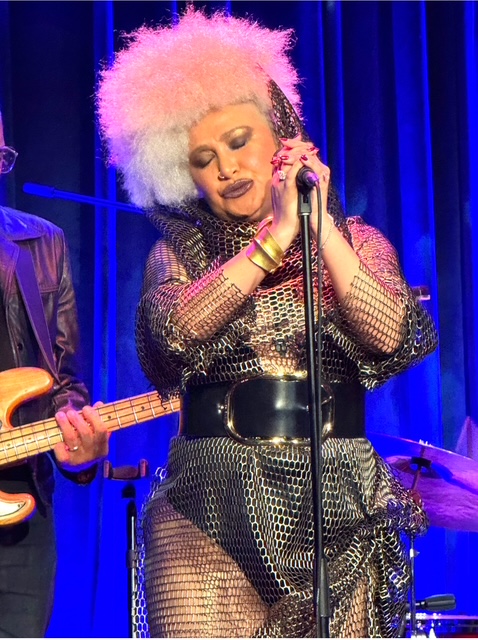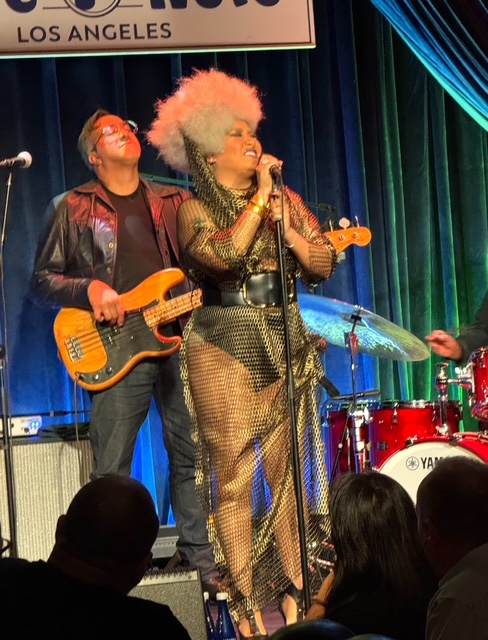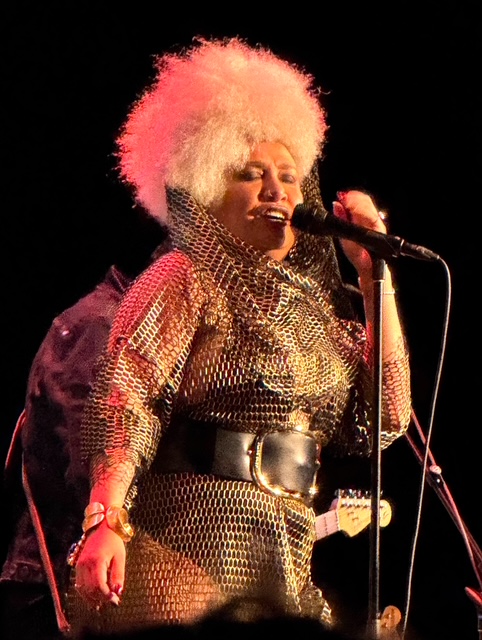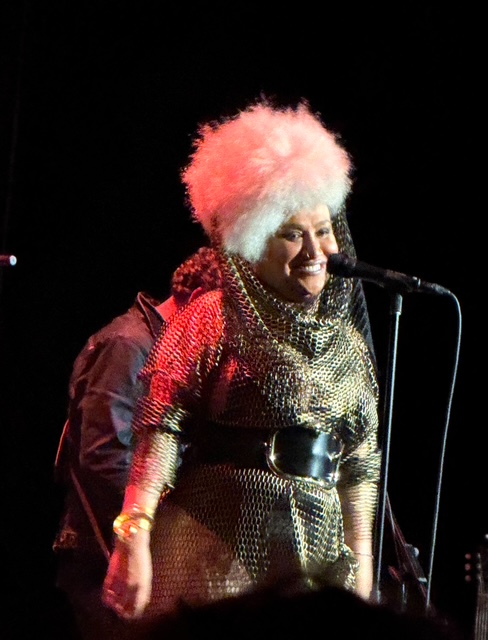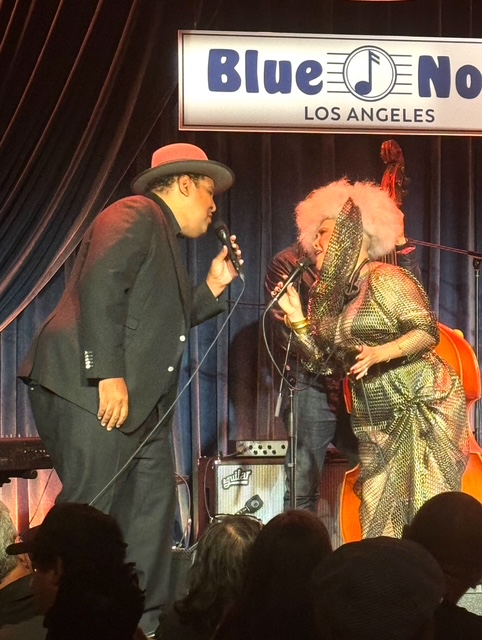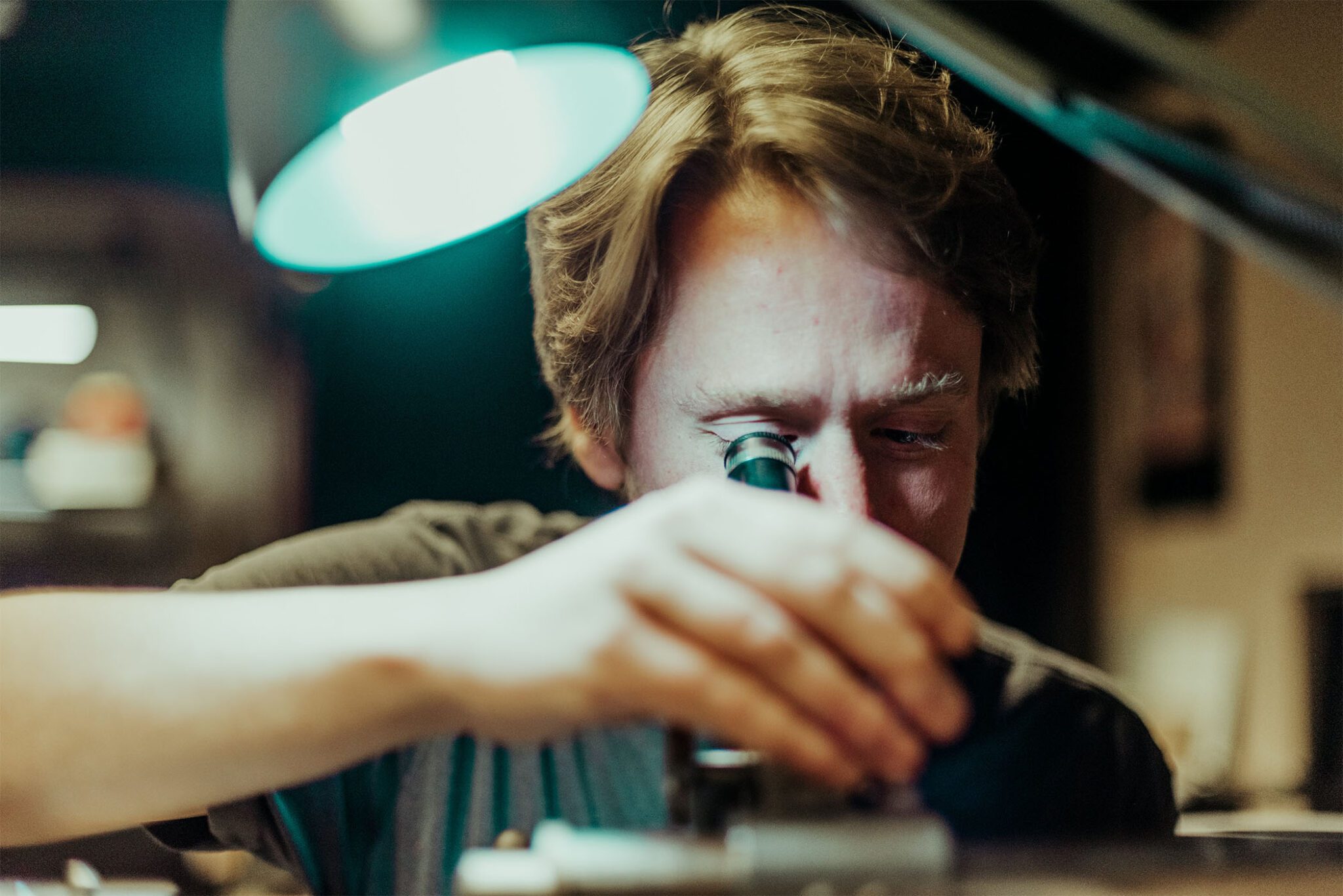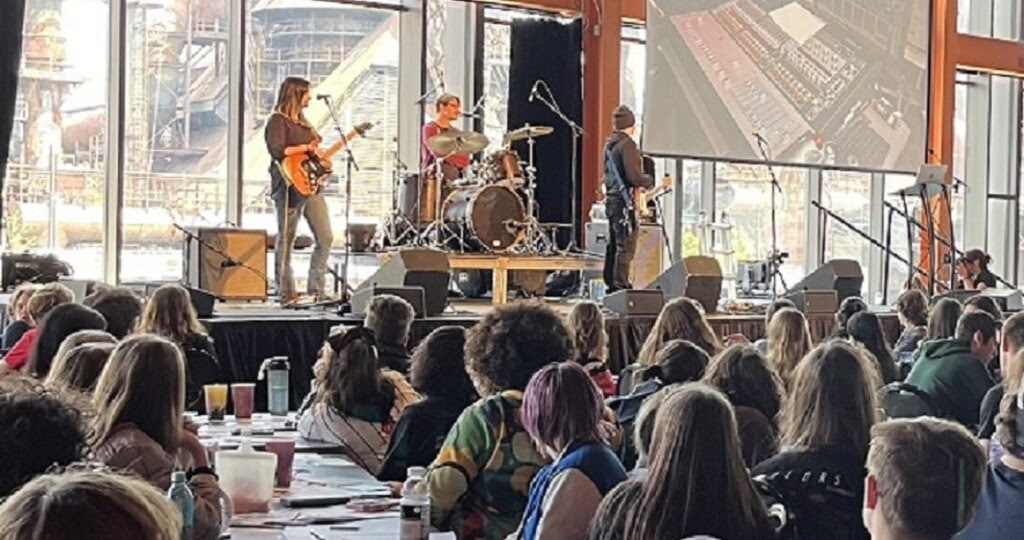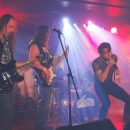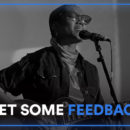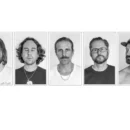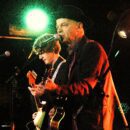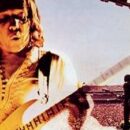Long before the 2020 release of her hypnotic, visceral jazz-soul re-imagining of Nina Simone’s 1966 song “Blackbird” coincided with the Black Lives Matter movement and led her to redefine her identity as Lady Blackbird, New Mexico born Marley Munroe was such a prodigious talent as an adolescent that she signed with a Nashville based Christian label at 12 and began to work with CCM rap/rock stars DC Talk. Though she was raised in church, by her mid-teens, she no longer wanted to be musically limited or branded as a Christian singer, leading her to opt out of her contract and become an indie musician that began touring and recording with DC Talk’s TobyMac and doing sessions in L.A. and N.Y.C. with Jimmy Jam and Terry Lewis, Sam Watters, Tricky Stewart and Louis Biancanitello. Though she signed with Epic Records and released a few pop soul singles, Munroe didn’t feel comfortable doing mainstream R&B.
The empowering story of how the singer, working with longtime friend and GRAMMY nominated producer Chris Seefried, evolved into the critically acclaimed, spiritual/not religious, genre transcendent Lady Blackbird is one that should inspire all artists who don’t fit neatly into categories to be patient with the process. She was 36 when she dropped her first album Black Acid Soul (2021), which reached No. 6 on the UK Albums chart and entered the UK Jazz & Blues Chart at No. 1—a feat repeated by her triumphant, equally powerful 2024 follow-up Slang Spirituals.
That collection’s artful blend of modern and classic soul with gospel and jazz influences—and empowering themes of self-discovery, personal and collective freedom and spiritual venturing—earned Lady Blackbird favorable comparisons to Amy Winehouse’s era-defining album Back to Black. Interestingly, because tastemakers struggle to find the right category to laud her freewheeling hybrid of jazz, soul, gospel, psychedelic rock and pop, she was named International Jazz Act of the Year at the Jazz FM Awards in 2022.
In mid-October, Lady Blackbird’s groundbreaking, soul-stirring fusion made an intensely emotional and alternately haunting/moody (via her ambient soul vibe) and joyous (via those enduring gospel roots) initial splash at the Blue Note Los Angeles as a GRAMMY voting season preview of her upcoming three-month residency (December 1, January 26, March 23). Backed by the stellar, subtle when required but most often groove fired trio of Seefried (MD, guitar, vocals, piano), Jon Flaugher (upright bass) and Tamir Barzilay (drums), the singer took her rapturous crowd on a roughly chronological journey of her career since the name change.
Unforgettably dressed in a sparkly gold jumpsuit (complete with huge belt and buckle) and her trademark Russian-style white furry hat (known as an ushanka), she opened with a two song ode to her Simone-related breakthrough with a sultry and sensual, captivating and at times dramatic reading of “Feelin’ Good” (which she definitely needs to formally record!) and a gently pulsating “Blackbird” that captured all the edgy vocal shadows and intense hypno-magic of her studio recording. She found the perfect transition to the Slang Spirituals core of her set with a high energy romp through “Woman,” a UK singles charting track (from the deluxe version of Black Acid Soul) that takes a raw, colorful and supremely witty look at the complex roles women have played throughout history – including all the pain, struggles. loss and ultimately love they give. In a show by a normal mainstream R&B artist, this would be the mic drop song, but in Lady Blackbird land, it was an open door to the fullness of her artistry revealed on Slang Spirituals.
Now, a word or two about its provocative title. It’s about her personal journey of liberation, empowerment and self-acceptance, swirling the “slang” of her vulnerable, heart on her sleeve personal story with heartfelt, dynamic “spirituals” about redemption and hope in the face of an increasingly chaotic world. The 12-song opus combines personal and universal expressions like few other contemporary albums—and it seemed to be the singer’s pleasure to share her personal triumphs and travails amidst the larger context of traditional African-American spirituals that speak of enduring hardships and fleeting moments of liberation and progress.
The key to Lady Blackbird’s impactful storytelling is the way she effortlessly weaves the shadowy impulses of reality into even the most loving expressions, truly capturing in a few simple phrases the duality of human relationships. So while on the surface, her intoxicating ballad “No One Can Love Me (Like You Do)" seems like a reflection of a cookin’ romance, she quickly acknowledges “And nobody can love me and hurt me, so coldly, and hold me too.”
As the singer traversed her expansive artistic vista from this heartfelt, almost too honest gem to the spirit-lifting gospel singalong anthem “Let Not Your Heart Be Troubled” (whose title quotes directly from Jesus’ words in John 14), she colored her set with a handful of charming introductory anecdotes which illuminated the songs. Before the mid-tempo, longing seduction “Matter of Time,” which is centered on oft-repeated plea “Don’t you hear me knocking/Won’t you let me in?” as she stands at the door of an elusive lover, she simply said, “In my head, this will always be grown people shit!” She followed with “If I Told You, an inviting, easy flowing pop-soul-gospel gem whose core line “Do your girlfriends know you love me?” again captures her insight into complicated (and too often unfulfilling) relationships. She freely admitted beforehand that she, Seefried and their co-writer Andrew Heissler originally wrote it like a country song before they reworked it to fit the aesthetic of the album.
Likewise with “Someday We’ll Be Free,” a haunting ballad she presented as part of an extended, stripped down acoustic set (with only Seefried’s sparse guitar accompaniment) that finds her yearning for a world where full racial and sexual acceptance is possible. She explained beforehand that the song emerged in one of their first writing sessions for the album, and it took the project in a very personal direction. When she demo’d the song, she was in tears because she realized that ultimately, the song was her talking as an adult to her younger self—telling her that she’d ultimately pull through and that “you’ll be okay.”
Amidst all the funky, raucous moments of Lady Blackbird’s eclectic set, “Someday We’ll Be Free” stood out as the true emotional core of the set, an opening to her truest creative heart. Another powerful highlight of the acoustic subset of the performance was her majestic duet with veteran soul singer Chris Pierce on the gorgeous, richly spiritual “Two Angels,” a song they recorded for the 2023 documentary about songwriter Peter Case titled A Million Miles Away.
Lady Blackbird’s duetting wasn’t done however, as she invited the eternally youthful, surreally talented violin virtuoso and Grammy winner Lili Haydn up to add her graceful string caress to the freedom seeking ballad “Man on a Boat” before she let Hadyn loose on an extended version of “Whatever His Name” to work the same kind of intense, percussive and skyscraping magic she’s brought to the works of Jimmy Page and Robert Plant, Sting, George Clinton, Roger Waters, Herbie Hancock and other legends. Lady Blackbird wandered off the stage for those few minutes as Haydn weaved her transcendent spell, offering a rousing, very much in the moment highlight which will hopefully translate to a recorded collaboration in the future.
The singer returned to finish the song before reaching back once more to her debut album for the lilting meditative “It’ll Never Happen Again,” upping the intensity into wondrous Tina Turner territory as she asks what we have all no doubt asked at one point or another in our lives: “Why can’t you be/The way I want you to be?/Why can’t you see/You’ve got to change to love me?” That’s classic Lady Blackbird—acknowledging the flaws we all have and the ways humanity is lacking but always pressing forward with a sense of hope that one day we’ll all be better—and all be free.
Those who missed this incredible, musically compelling and spirit shifting show should check out one of Lady Blackbird residency performances in the coming months.

